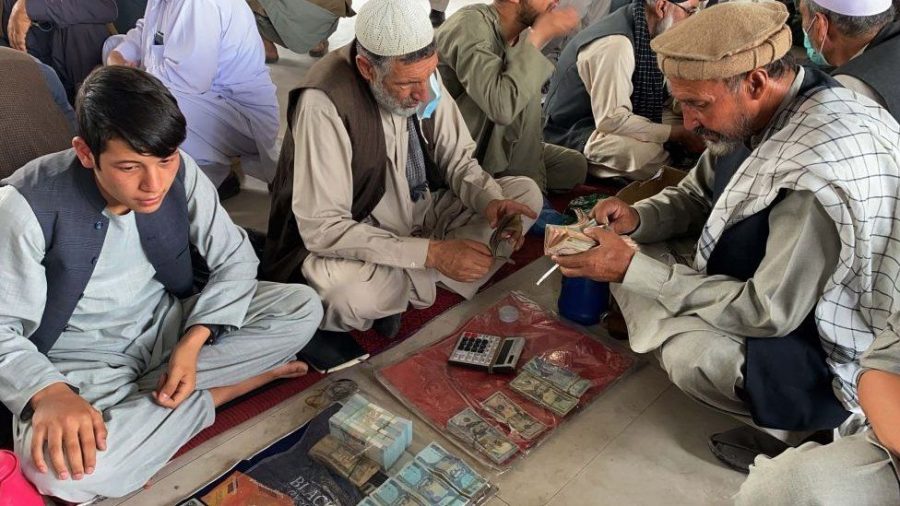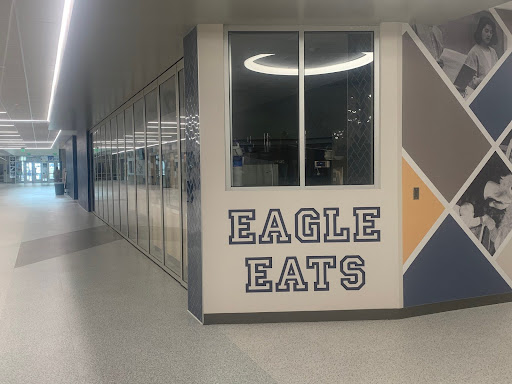Politics as Part of Skyline Life
Shortly after the Taliban took Kabul after the departure of all United States troops from Afghanistan, the United States was in a firestorm. President Joe Biden came under much criticism as a result of what some saw as a flawed and rushed withdrawal. His approval rating dropped significantly, and news outlets covered the events that unfolded at an ever greater pace. However, at Skyline High School, protests, discussion, and action were somewhat limited for a high school. While high schools generally are areas of intense political discussion and action, Skyline was quiet and muted.
Melinda Reay teaches AP Human Geography and AP US History, and extensively spoke about prior events of significance in America. Reay stated that “My 9th graders had no idea what was going on [in Afghanistan]. AP a little more, but my ninth graders…had no idea at all.” Reay elaborated, “I think that students are interested in learning more about current events, but it takes a teacher…or an adult to tell them about that issue for them to really realize about it because often…I’ll bring up something that…everybody should know, but people have no idea.” This is quite an interesting insight: that Skyline as a whole is just not politically active. In the past few months, Skyline has had few political marches or protests on its grounds, and politics is infrequently discussed. What is even more interesting is that the Skyline Speech and Debate team, which regularly makes it to state championships, has events requiring in-depth research and knowledge on highly political topics. Melinda Green, a teacher of history in honors, AP, and IB, shared a similar opinion: “I know that they’re aware of it but they don’t really say a lot. I would assume that they do have an opinion but I’m not entirely sure if they completely understand what’s happening there.” The students interviewed (Arivan Verma, a freshman; Monica Weiden [grade not received]; and Anagha Rao, a senior) did have opinions, with Arivan and Monica blaming the Biden administration and Anagha not taking an opinion. Thus, these students did not fall exactly within Green’s opinion, with Arivan, Monica, and Anagha saying that they check the news “at least one time every two days”, “every morning…[for] 30 minutes”, or “every day” respectively.
Green and Reay held different views of their student’s knowledge of current events in years past. Green stated that she had many politically active students in years past, while Reay stated that many of her students were not knowledgeable about current events. Reay cited what happened in her classroom after the Las Vegas shooting in 2017: “I remember distinctly, for example, a few years ago when the Las Vegas shootings happened…and a lot of people here at Skyline had people who were at that shooting and nobody had any idea until I said, ‘Do you guys not realize that 50 people died this morning only about 6 hours away from you?’” Reay stated that there was a lack of knowledge of current events in her classroom and that those with current events knowledge often received their information on social media. Arivan, however, said that he got his news from “Google News or Apple News spotlights”, and Anagha Rao said that she read “CNN 5 Things” (a newsletter).
Nevertheless, Reay was optimistic about student growth in understanding politics, expressing her thoughts that as students grow older, they become more politically knowledgeable. Reay thought that 16 is roughly the “magic number”. Students interviewed all argued or discussed politics to some degree with others. Arivan said, “They’ll [his friends] give me background information, I’ll take a stance, and then we (student & his friends) argue about it”. Monica stated, “Probably at least once every day…it always come up at some point…the arguments aren’t extremely heated.” Anagha said, “With my family it’s mainly my grandpa…I discuss it with him…I have super liberal friends and super conservative friends so I really don’t discuss politics with my friends because I don’t want to offend anyone.” Green was unable to provide a definitive answer, stating that “because I’m just getting to know them this year” that such a judgement was not possible.
Both Reay and Green stated that students in their classes did not seem to understand or discuss politics. The teachers felt that their students didn’t seem to understand politics all that well in their classes based on their experiences. However, students disagreed with these assessments, with all frequently checking the news, having opinions about Afghanistan, and discussing politics with friends, family, or teachers. With such contradictory statements, it is difficult to decide who to believe. On the one hand, the teachers teach classes that are intertwined with politics at every level (AP Human Geography and AP US History for Reay, and history classes in general [including AP] for Green) seem to believe that their students are not very informed about politics. On the other hand, students interviewed, two in Speech and Debate and one not, seem to consume the news and stay informed. What these interviews show is not that Skyline students may or may not be politically apathetic as a whole, but that making such a statement – in either direction – would be misleading and incorrect. Rather, it is really up to students individually – your writer, the reader, the students, and the teachers – to inform themselves of what is going on in the world with context, regardless of perceived relevance, to make a better informed school and a better informed world.




